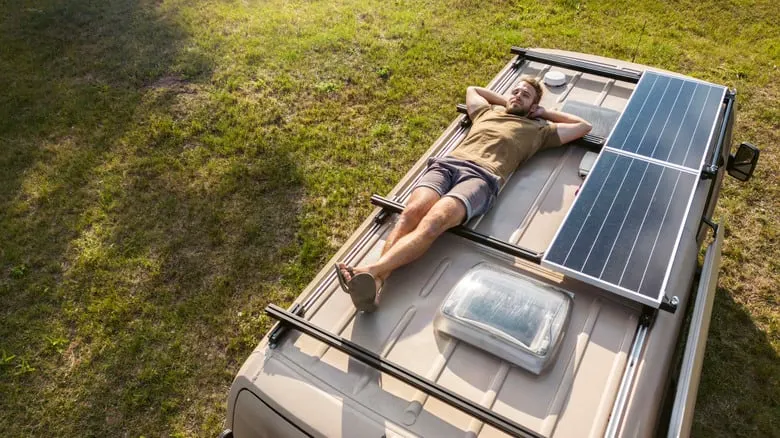
Ever thought traveling could be greener? RVing might be the answer! With a few mindful choices, you can turn your RV adventures into a sustainable way to explore the world.
1. Opt for Lightweight and Fuel-Efficient RVs

Choosing a lightweight and fuel-efficient RV can make a big difference. These RVs use less fuel, which means fewer emissions and a smaller impact on the environment. Look for models designed with aerodynamics and fuel efficiency in mind.
By opting for a lighter RV, you’ll not only save on fuel costs but also enjoy easier handling and less wear and tear on your vehicle. It’s a simple step that helps make your travels greener and more economical.
2. Utilize Renewable Energy Sources
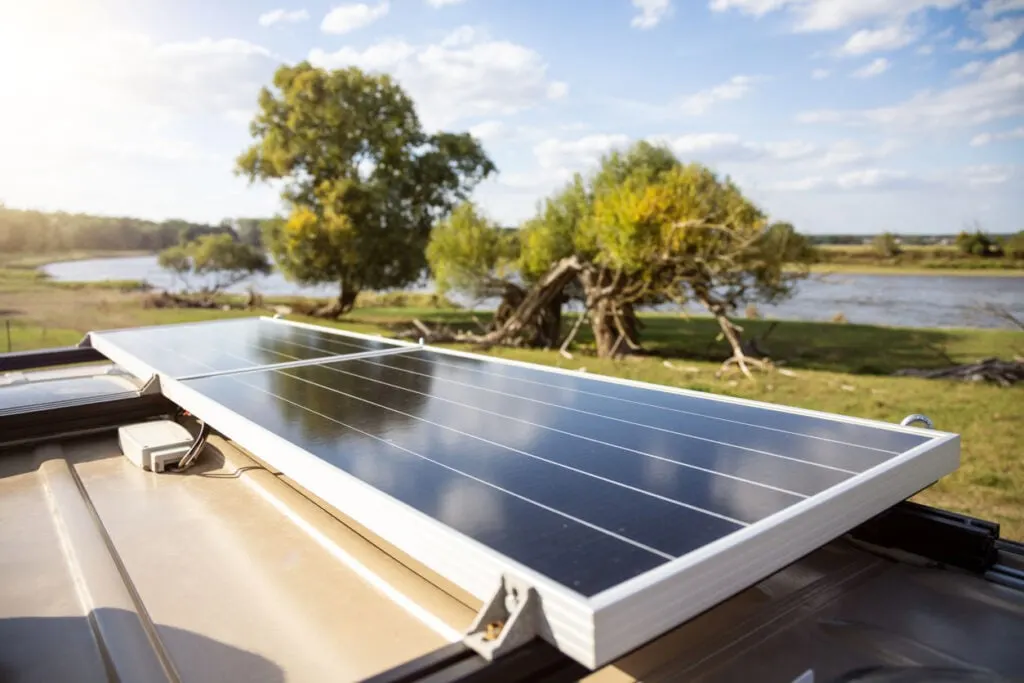
Harnessing renewable energy is a smart move for RVers.
Installing solar panels on your RV can power your lights, appliances, and more, reducing your reliance on non-renewable energy sources. This switch not only cuts down on your carbon footprint but also saves you money on energy costs.
If you’re in an area with consistent wind, consider using a small wind turbine as an additional power source.
Combining solar and wind energy ensures you have a reliable, eco-friendly power supply. By utilizing renewable energy, you make your RVing experience more sustainable and cost-effective.
3. Implement Water Conservation Practices
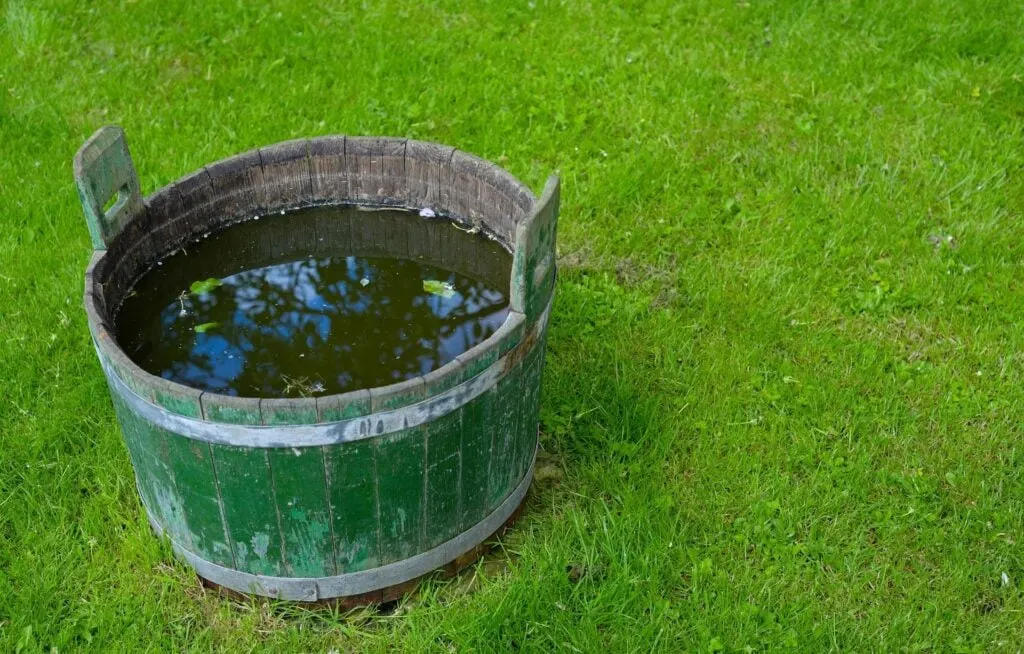
Conserving water is key when you’re on the road. Start by installing low-flow showerheads and faucets in your RV to reduce water usage. These fixtures help you use less water without sacrificing comfort.
Another great practice is collecting and reusing greywater for tasks like flushing the toilet or watering plants.
This simple step can make a big difference in your overall water consumption. By being mindful of your water use, you can extend your stay off-grid and reduce your environmental impact.
4. Adopt Sustainable Waste Management
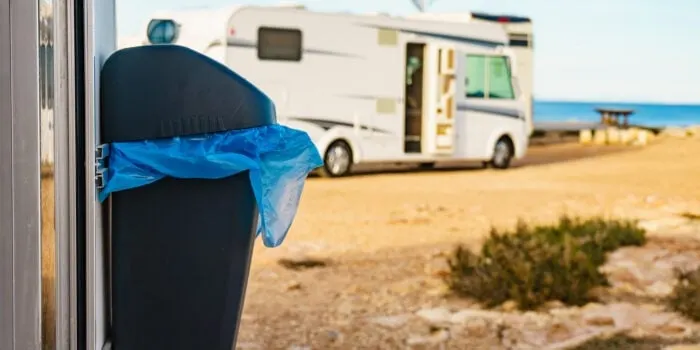
Managing waste sustainably is crucial for eco-friendly RVing. Set up a simple recycling system in your RV to sort your waste into recyclables, compostables, and trash. This helps reduce the amount of waste sent to landfills.
Proper disposal of hazardous waste, such as batteries and chemicals, is also important. Use designated disposal sites to ensure these items are handled safely.
By adopting sustainable waste management practices, you contribute to a cleaner environment and promote responsible travel habits.
5. Choose Eco-Friendly Campgrounds
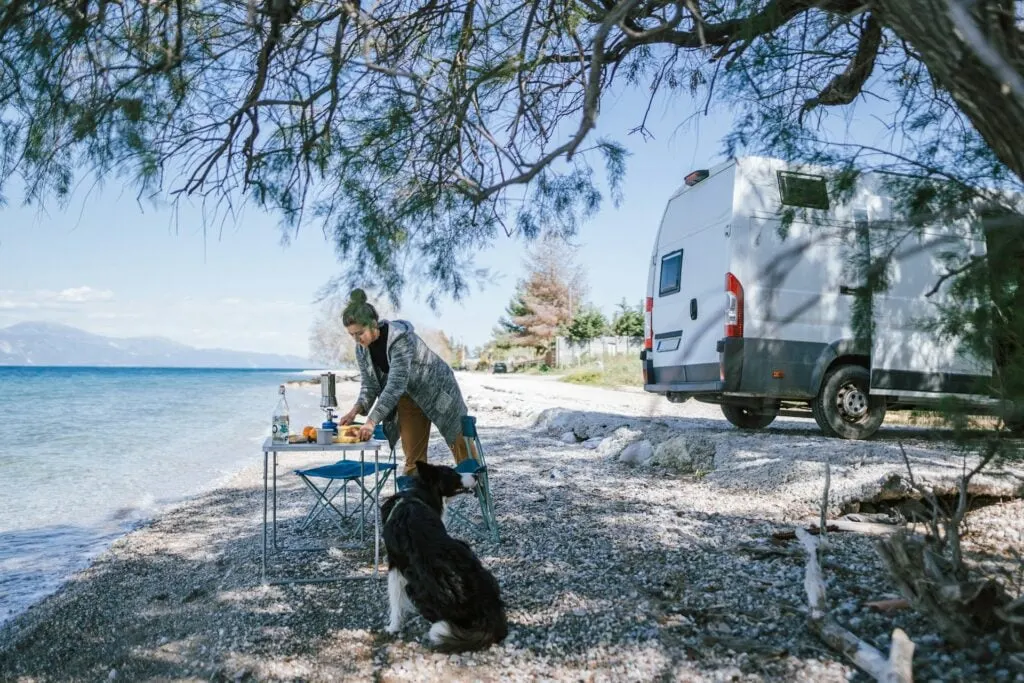
Opting for eco-friendly campgrounds can make a significant difference in your RVing impact.
Look for campgrounds that prioritize sustainability, such as those using renewable energy, having robust recycling programs, and promoting water conservation practices.
Staying at these eco-conscious sites not only supports businesses committed to protecting the environment but also encourages more sustainable travel habits. By choosing green campgrounds, you help preserve the natural beauty of the places you visit.
6. Practice Green Driving Habits
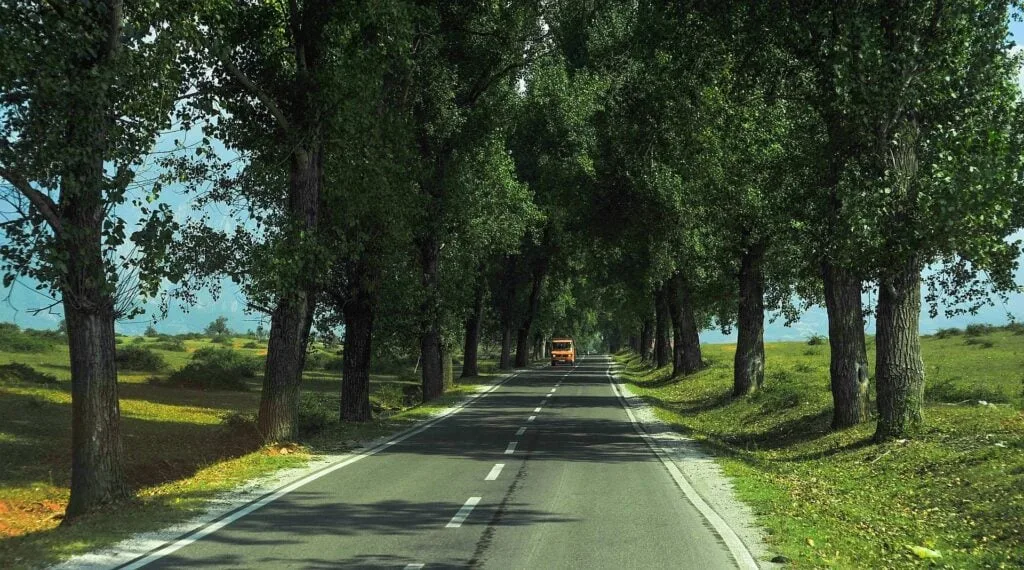
Driving efficiently can greatly reduce your fuel consumption and emissions. Maintain a steady speed and avoid sudden accelerations or braking to make your RV more fuel-efficient.
Regularly check and maintain your tire pressure and engine to ensure optimal performance.
Additionally, try to plan your routes to avoid heavy traffic and unnecessary idling. By adopting these green driving habits, you can save money on fuel and reduce your environmental footprint, making your RV travels more sustainable.
7. Purchase Local and Organic Foods

Supporting local farmers and markets is a great way to reduce your carbon footprint while RVing.
Local produce means fewer transportation emissions and fresher food on your table. Plus, buying organic foods ensures you’re consuming fewer pesticides and supporting sustainable farming practices.
Cooking your meals in the RV not only cuts down on waste from takeout containers but also gives you control over what you eat.
Embrace local flavors and enjoy healthier, eco-friendly meals on the road. By choosing local and organic, you contribute to a greener planet and better health.
8. Upgrade to Energy-Efficient Appliances
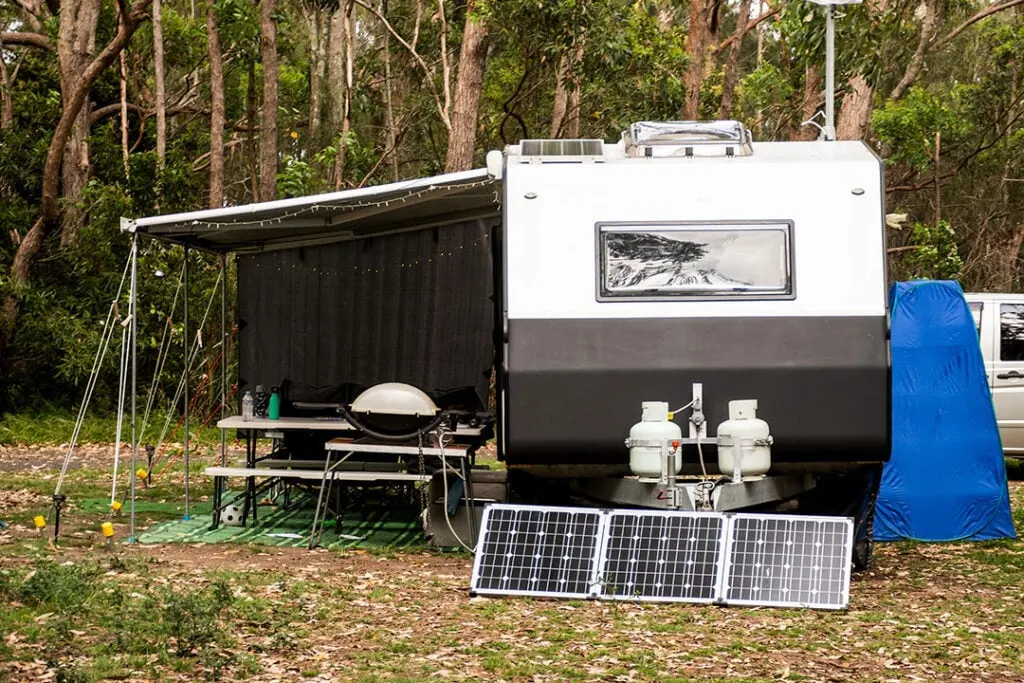
Switching to energy-efficient appliances in your RV can make a huge difference in your overall energy consumption.
Look for fridges, microwaves, and air conditioners that have high energy efficiency ratings. These appliances use less power, helping you save on energy costs and reduce your environmental impact.
Not only will you benefit from lower utility bills, but you’ll also contribute to a more sustainable lifestyle. Investing in energy-efficient appliances is a smart and simple way to make your RV greener and more economical.
9. Use Eco-Friendly Cleaning Products

Keeping your RV clean doesn’t have to harm the environment. Opt for eco-friendly cleaning products that are non-toxic and biodegradable. These products are free from harmful chemicals that can pollute water sources and harm wildlife.
Using green cleaning supplies ensures you’re maintaining a healthy living space without compromising the environment. Plus, they often work just as well as traditional cleaners. By choosing eco-friendly options, you contribute to a cleaner planet and a healthier RV lifestyle.
10. Minimize Single-Use Plastics

Reducing single-use plastics is a simple yet impactful way to be more sustainable while RVing. Opt for reusable containers, water bottles, and shopping bags to cut down on plastic waste.
Bring along items like metal straws, cloth napkins, and reusable utensils.
Avoiding single-use plastics not only helps reduce pollution but also keeps our natural spaces clean and pristine. Small changes in your daily habits can lead to significant environmental benefits.
11. Support Conservation Efforts

Participating in local conservation projects can make a significant difference. Whether it’s volunteering at a national park, donating to wildlife preservation organizations, or participating in clean-up events, your efforts help protect the environment.
Supporting conservation efforts not only preserves the natural beauty you enjoy while RVing but also promotes biodiversity and healthy ecosystems.
By dedicating some of your time or resources to conservation, you contribute to a sustainable future for all outdoor enthusiasts.
12. Engage in Sustainable Outdoor Activities

Choosing eco-friendly activities can make your RV trips more sustainable. Opt for low-impact activities like hiking, biking, and kayaking, which allow you to enjoy nature without leaving a significant footprint.
Avoid activities that harm the environment, such as off-roading in sensitive areas or using disposable gear.
By engaging in sustainable outdoor activities, you help preserve the natural landscapes you love to explore while promoting eco-friendly tourism practices.
13. Educate Fellow Travelers
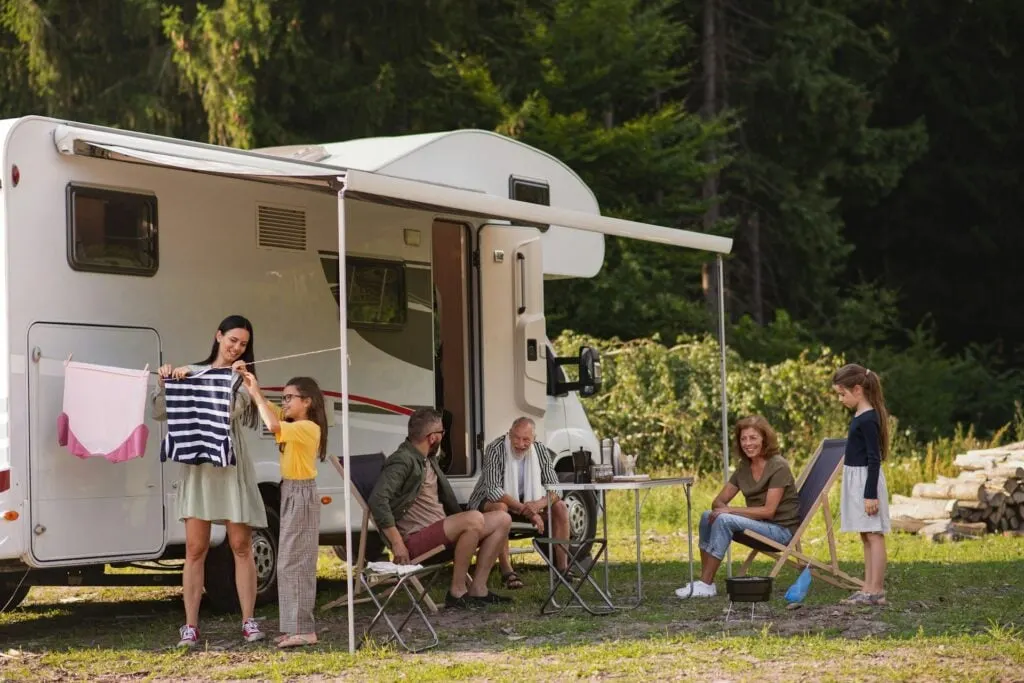
Sharing your knowledge about sustainable RVing can inspire others to adopt eco-friendly practices. Talk to fellow travelers about the benefits of renewable energy, water conservation, and reducing waste.
Use social media or travel blogs to spread awareness and share tips. By educating others, you create a ripple effect that promotes responsible and sustainable travel habits. Your efforts can make a big difference in preserving the environment for future generations of RV enthusiasts.
Conclusion
Make RVing a sustainable adventure and enjoy the journey knowing you’re helping the planet!
By implementing these eco-friendly practices, you can reduce your environmental impact while experiencing the beauty of the world from the comfort of your RV.
Let’s hit the road and go green!
